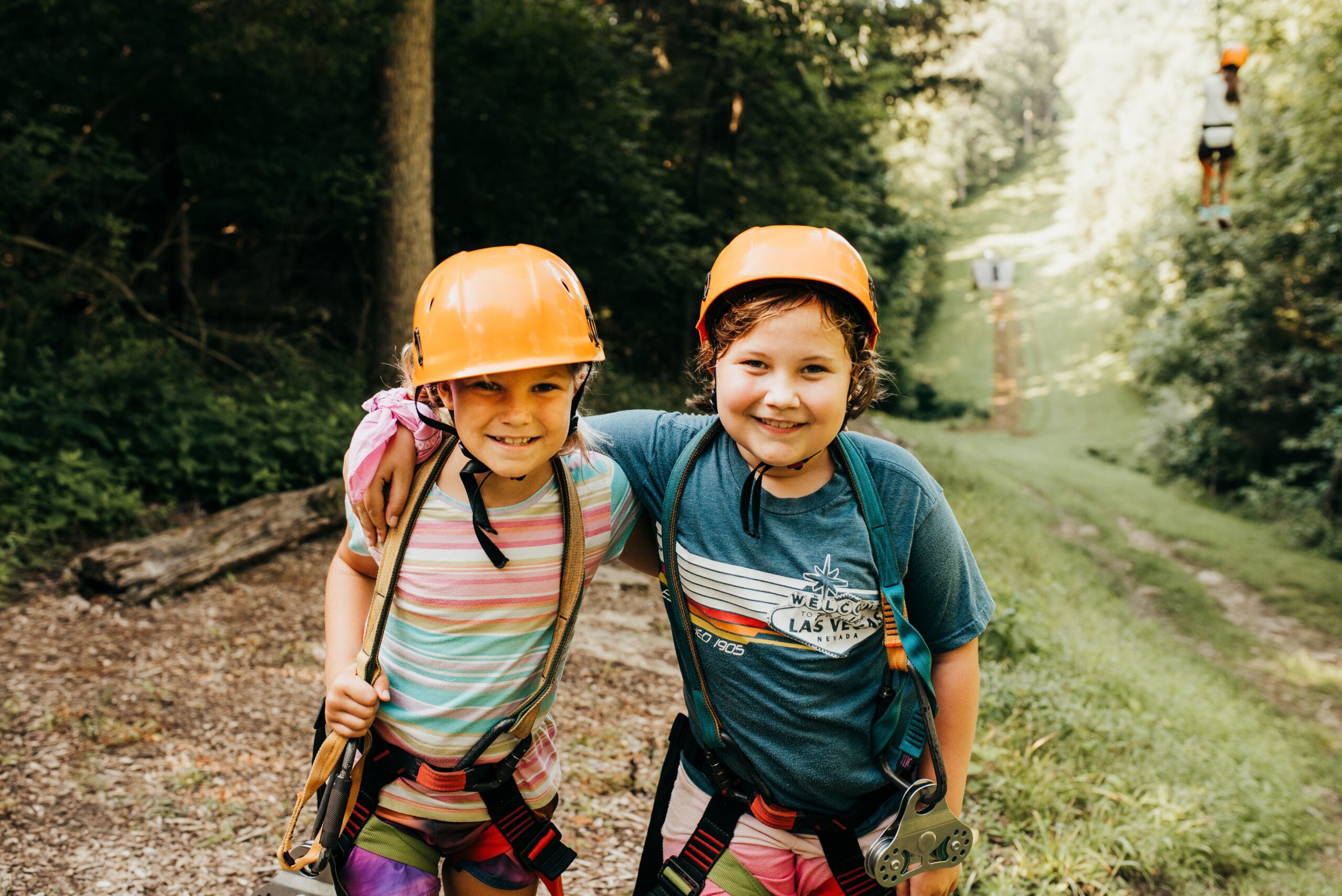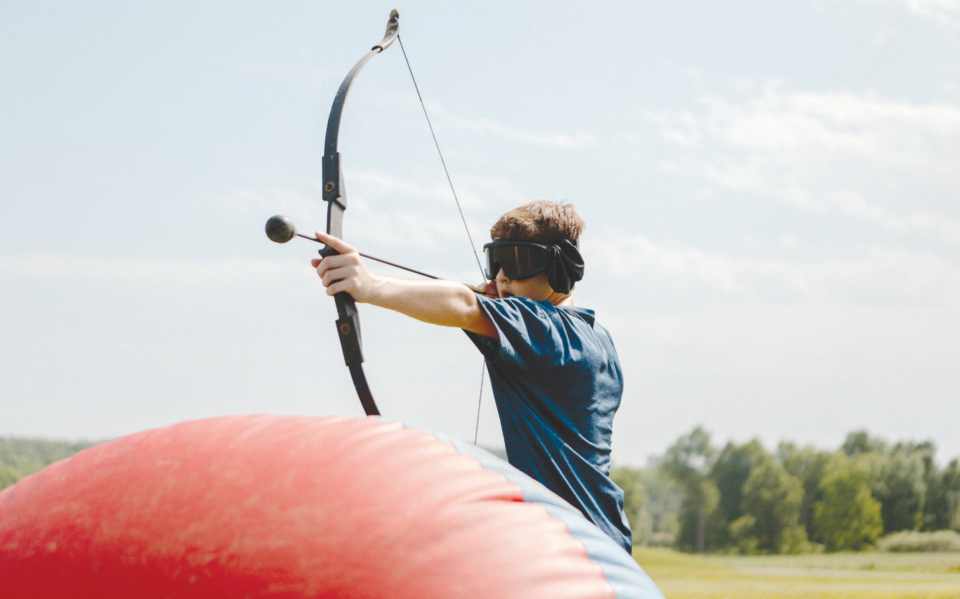Your kids are packed and ready to go to camp. You send them off for the day or maybe a week. As you drive away, the questions begin to take over your mind. It’s normal — we will always be worried about our kids no matter how prepared we are.
Tali Cornblath, assistant director at Falcon Camp, a sleep-away camp located in Carrollton, Oh, gives answers to those real-life questions we have.
Q: What will my kids learn/take away at camp?
A: It’s hard to condense what a child learns at camp into one answer. The most common answer we hear from Falcon parents is independence. Providing an outlet for your child to make their own decisions, fold their clothes and live for a bit without parents is hugely beneficial. Kids also get the opportunity to decide who to be at camp since they are meeting a whole new group of people; they often learn a lot about themselves and settle into their changing personalities. We also hear a lot about improved social skills, a greater sense of initiative and responsibility and leadership.
Q: How do I know if my kids are ready for sleepaway camp?
A: If you have a typically developing child over about the age of 8, they are almost definitely ready for camp, and will grow from the experience. There are a few important developmental skills that are usually necessary at most camps. Those include toileting and showering on their own, sleeping in their own bed, getting dressed and undressed on their own, and being able to follow two or three step instructions. Additionally, some of the responsibility for that question falls on the parent – the way you prepare your child for sleepaway camp will impact their readiness. If you tell your chil that you will pick them up if they are homesick, what they will hear is that you don’t think they are ready and they can’t do it. However, if you are positive about all the fun they will have, and reiterate that while there may be some challenges, you know that they can handle it, they are much more likely to be ready for a sleepaway experience.
Q: If there is an emergency, what are the protocols?
A: If there is an emergency, we rely on our training and previously determined protocols. In general, the protocols include ensuring the safety of people involved in the emergency as well as others, communicating with parents/guardians of involved campers, and debriefing after the fact to ensure the best possible response.
Q: If something unexpected goes wrong at overnight camp, (toilet overflows, AC goes out, etc.) generally what would happen?
A: Again, there are a lot of unexpected possibilities – and the truth is, something unexpected happens pretty close to every day! If a toilet overflows, we’re going to plunge it. Many unexpected things are handled quickly by a Falcon staff member and without need for further involvement. We also have a maintenance staff who are made aware of more complicated issues.

Q: If my kid begins to get worried or scared, how do camps handle homesickness?
A: I can’t speak for all camps, but I am happy to share what generally happens at Falcon Camp. Because we have a high staff:camper ratio, we are usually aware of issues like homesickness very quickly. Our staff addresses it at first. Our general process is to speak with and acknowledge a camper’s feelings about homesickness, and then redirect and engage them in a fun camp activity. While that may sound harsh, the truth is that downtime is the greatest cause of homesickness, and when we can get campers involved in camp they are far less homesick.
Q: What are some fun activities kids get to do at overnight camps? Can they choose?
A: Different camps operate in different ways; some have scheduled activities like school, others allow kids to choose what they want to do each day. Some create schedules around the camper’s choice. There are so many different types of camps out there now that you can probably find a camp for almost any hobby! Is your child interested in learning how to animate? There are computer camps! How about a sport? There are camps that focus on sports in general or a specific sport, like soccer or tennis. A more traditional camp will offer a wider variety of activities, and these can include archery, riflery, swimming, sailing, nature study, rock climbing, horseback riding, drama, music and tons more! If there is something specific you are looking for, definitely look at a camp’s website or reach out to a director! Even if their camp doesn’t offer it, they may know someone who does.
Q: My kid doesn’t really tell me about his day at school; it’s hard to get him to express himself. What are some ways I can ask my kid if he is enjoying camp?
A: This is a question that may differ from camper to camper, but instead of asking your camper about their feelings, it might be more successful to ask them about their friends, activities, or daily routine. The way they describe what they do every day will give some insight into their enjoyment of camp. This question also differs for day and overnight camps.
Q: Will some camps have a nurse on the premises in case something goes wrong?
A: If an overnight camp is American Camp Association-accredited (as a side note, I highly recommend you begin your camp search by looking at ACA, since camps that are ACA accredited have documented and proven that they meet hundreds of standards focused on the safety and well-being of your children), they are required to have a nurse on-site at least once per day. Many camps have someone on-site at all times, like we do at Falcon, while others may have a “visiting nurse” system. The standards are also different for day camps. This is a great question to ask a director as an initial screening tool!
Q: What is the best way I can get in touch with my kids?
A: Different camps use different methods, so this is something to inquire about before you choose. Many traditional overnight camps rely on snail-mail only. Some use a one-way or two-way email system (if it’s one way, you’ll be able to email your child but they will have to write letters in return). Camps have a variety of different policies on phone calls and cell phones; at some camps, your camper will be able to call home a couple times a week, or may even be allowed to bring their phone. Other camps have fairly strict no phone call policies, and/or don’t allow cell phones. If you are a parent who is not comfortable if you can’t speak to your child every day, those camps are probably not right for you. I recommend asking camps their approach, and also ask them why – they usually have a good reason for whatever method they’ve chosen.
Q: Is there anything else you can tell me to help ease my mind while my kids are away from me for a day or sleepaway camp?
A: An overnight camp is an incredibly valuable experience for kids. It helps them feel confident in themselves, increases their independence, and teaches them how to live in a community, all while having a great time! We understand that we are responsible for the most important things in the world: people’s children. We don’t take this responsibility lightly. The amount of preparation that goes into ensuring that your child is safe, cared for, and enjoying themselves is extensive. That being said, you need to feel comfortable with the people who are taking care of your child.





